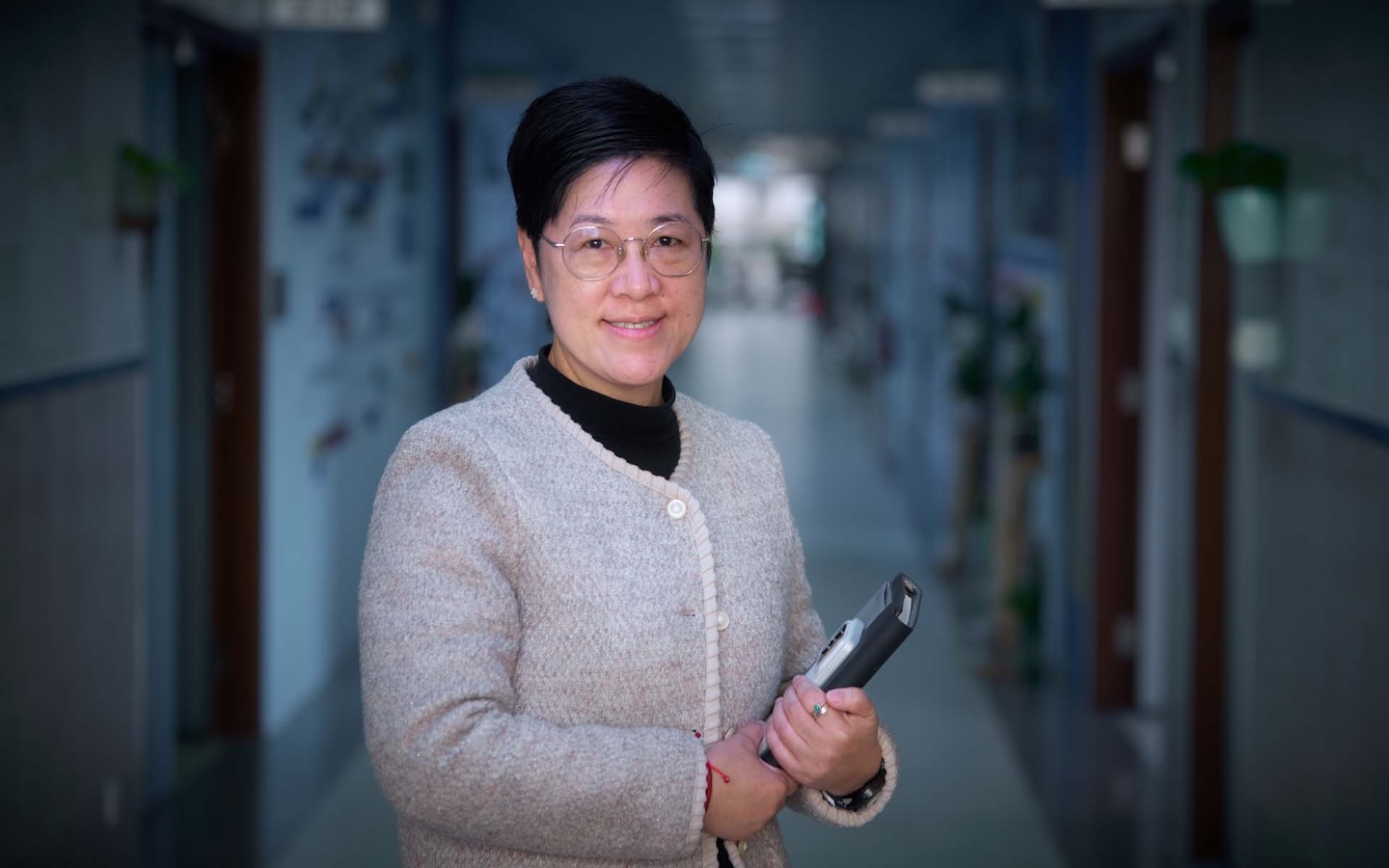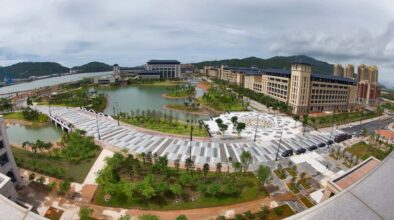Macao may be toasting the 20th anniversary of the handover of its administration to China but it’s also two decades since the International Institute of Macau – an organisation dedicated to preserving the city’s culture, history and identity – was launched.
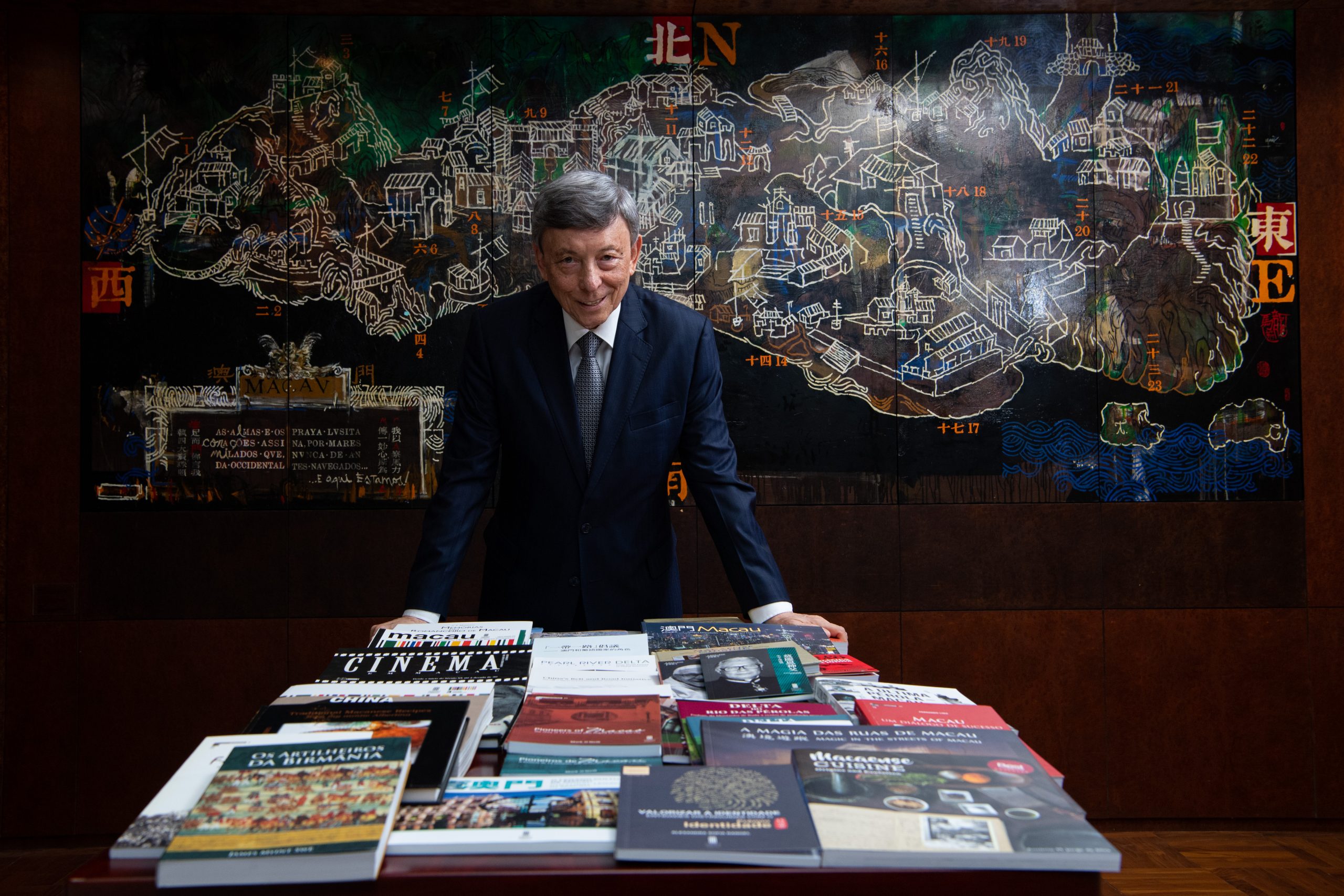
Over the past 20 years, the International Institute of Macau – or IIM – has grown up alongside the SAR, dedicating itself to championing the city on a global level as well as preserving the collective memory of the people. The non-governmental organisation, which is devoted to ‘giving a significant contribution to the development of Macao’ has promoted the cultural, social and economic identity of the territory ever since it started its activities in June 1999. But of all the projects it has undertaken over the years, one fact is truly apparent: its love of ink and paper. IIM is a big publisher of books covering city life, culture and everything in between.
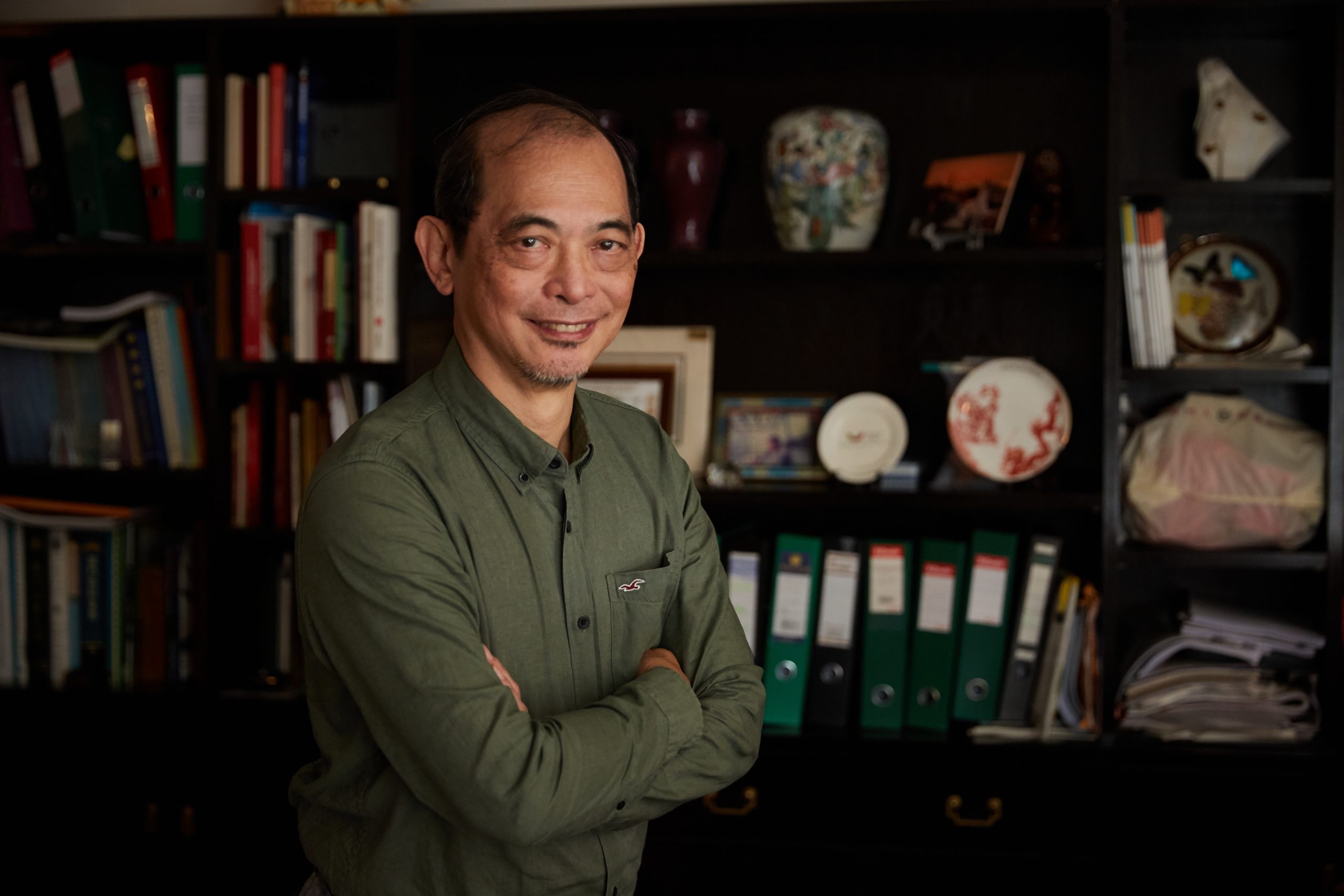
On entering IIM’s headquarters inside a residential building in Rua de Berlim, visitors are immediately impressed with the extensive collection of publications on display. “And these are only a few of the books we have published over the past 20 years,” Rufino de Fátima Ramos, secretary-general of the institute, explains. Among the many titles, there is one clear common subject: Macao. It’s easy to marvel at the effort that is continuously being done by the institute to promote the city’s history, culture and heritage. “We have published a total of 258 books,” adds Ramos, proudly, “which gives us an average of 12 volumes a year over 20 years. And that is not counting the titles that we have co-edited or those which were sponsored by third parties.”
Ramos says IIM’s main focus is to ‘preserve the identity of Macao’. But it isn’t just about the city as the institute, which calls itself a ‘Macao-founded and based institution, with a Portuguese matrix and a universalist scope’, is also based on the other side of the globe, in Lisbon. “Lisbon is halfway to everywhere,” says the president of IIM’s board, Jorge Rangel. “From Macao it is difficult to connect with Africa or Brazil but the Portuguese capital cuts that distance in half. [This means] I can easily contact a writer who lives in Angola or in any of the ‘Casa de Macau’ in São Paulo, for instance.” The ‘Casa de Macau’ – or ‘Macao House’ – are associations around the world founded by members of the Macanese diaspora, dedicated to promoting Macao and the Macanese culture.
A constant evolution
Since IIM was founded 20 years ago, the city has changed profoundly. However, the institute has done a great job of adjusting with the times. “Our primary focus was always that of preserving Macao’s identity,” says Ramos. “That is why a lot of our effort goes into reaching out to the different hubs of the community, namely in Brazil and Portugal. However, in recent years, we have also attempted to reach the Chinese community in Macao, mostly to share the city’s rich past.” To this end, IIM now has published a total of 50 books in Chinese, either as translations or original publications. The other books it has published are mainly in Portuguese or English.
“We understand the Macao identity to be everything that makes the city special and unique,” explains Rangel. “A great part of this is the Portuguese, the Chinese and the myriad of other influences which, thanks to the geopolitical situation of Macao, have impacted the city. The effort made by local public and private institutions has been comprehensive and has provided a solid support in preserving and valuing the local identity. Such is the case when it comes to the Forum for Economic and Trade Co-operation between China and Portuguese-speaking Countries, the Cultural Week of China and Portuguese-speaking Countries, the Lusofonia Festival and so many others.”
Ramos believes the institute is also on the right path to help in the promotion of local heritage. “To preserve the identity of Macao is a very broad goal to have,” he says. “That is why we have to be constantly perfecting our practices to fine-tune them.” Initially the institution focused on publishing books on the history of Portugal and Macao but soon it realised that it had to shift its approach. “The stories we were sharing happened too long ago,” says Ramos, “in a past no-one could relate to. So we decided to start talking about subjects that were of interest to all. That is when we started doing lectures in Chinese and publishing books on local folk tales and the history that directly relates to the people of Macao. It was here that we noted a lot of interest.”
Bookworms to the core
“I love books,” says Rangel, pointing at the multiple tomes of all shapes and sizes lining the solid wood shelves in IIM’s headquarters. “The digital options do nothing for me. Nothing beats the feeling of taking a fresh book off the shelf. I think you can see that devotion from looking at my office.” Books are the ‘great keepers of memory’ for Rangel. Without them, he believes, all the ideas that were once exchanged would be lost in time. “A book is what is left beyond our physical existence,” he adds.
Ramos also believes that books play a vital role in society. He reckons they help fill gaps that are left out of the education system. “No-one teaches the history of Macao in local schools,” he claims. “Without books, it is difficult to form a local identity. Teaching what happened in the past is a great way of connecting the different communities as they all had a role to play [in the development of Macao]. Learning history also helps with understanding the culture that we are inserted in.”
‘Really knowing Macao is different to knowing of Macao’, according to Ramos. “In fact,” he says, “we talk to a lot of people who tell us that the city’s face and the city’s soul are two opposites. That is why we see recent immigrants as our main market, in the sense that they are avid learners and are curious. They are also a big reason why we now publish so many works directly in Chinese.”
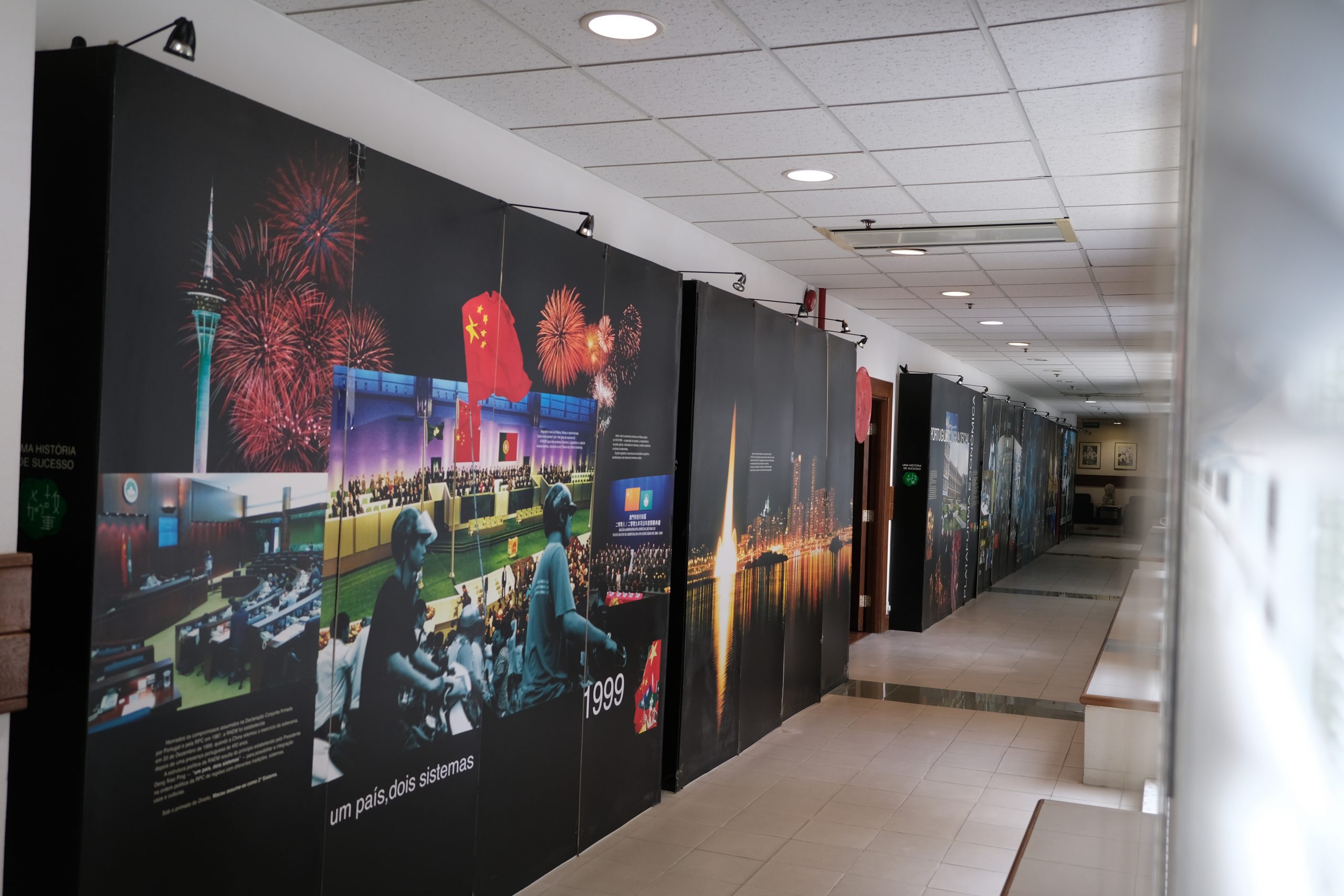
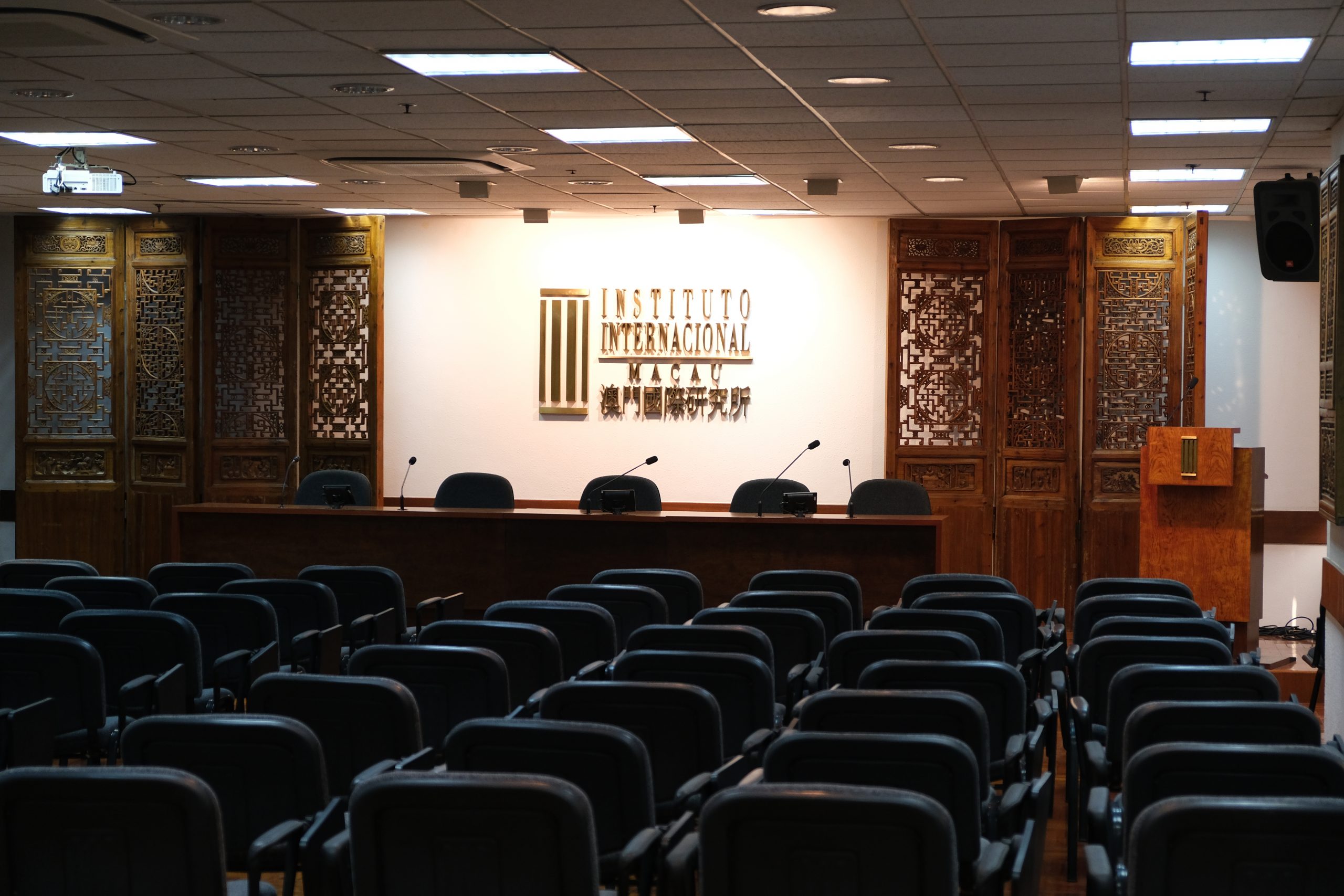
IIM does a lot more than publishing books, however. The institute also organises a multitude of events that take place all over the world throughout the year, including photography exhibitions in Portuguesespeaking countries, video contests, summits and book launches, each showcasing IIM’s commitment to preserving, discussing and promoting Macao’s cultural identity. “Thanks to our vast network of collaborators and partnerships with [other] institutions,” says Rangel, “we are able to take our exhibitions all over the world.” He adds that one of IIM’s photographic exhibitions, ‘Macao is Spectacular’, has been travelling for more than five years and has already been on display in at least 50 cities in Brazil alone. “All of this is at no extra cost to us, due to the help of the network we have created over the past 20 years,” he concludes.
Learning from the past
If anyone knows the Portuguese-speaking lands of the world, it’s Jorge Rangel. The 10th generation Macao resident has lived in or at least visited most of those countries. And he has a passion for history. However, Rangel does not believe that IIM should become, for all intents and purposes, a guardian of local history. “We can,” he says, “contribute to the promotion of local history through creating researching opportunities, events, photography contests and so forth.”
Ramos agrees that being solely responsible for local history is too much responsibility for one organisation to shoulder. However, he does see the value of passing on historical stories where possible to the people of today’s Macao so they can learn about its yesterday. “For example,” he says, “most people don’t know how the local people saved Macao from becoming like Indonesia [which was once controlled by the Dutch], for example. In 1622, the Dutch tried to invade the city. They had a meticulous plan and knew exactly when the city was at its most vulnerable as all of the Portuguese military had left to escort the great commercial ship, the ‘Barco Negro’ [‘Black Boat’, which was leaving Japan]. However, without the aid of the military, the local population – which consisted of the Chinese and Macanese communities, as well as some high-society women and Catholic missionaries – resisted.”
“In the end,” continues Ramos, “luck was on their side as one of the missionaries used a cannon to destroy – by chance, some say – the Dutch powder magazine, leaving the enemy with no ammunition.” Ramos says that when he recounts this tale and other historical accounts to people in Macao, he is reminded of how important it is to pass them on and to what extent a lot of local historical events remain largely unknown by the city’s populace. He is always reassured that he is ‘following the right path’ with IIM when he realises the ‘sheer interest’ that people have in Macao’s long and rich history.
Nevertheless, to Rangel it is important to remember that history is not the only factor that makes up a local identity. He says other aspects are ‘traditions, festivals, the local way of living and the cultural exchange among the youth’, as well as ‘the pride one takes while representing Macao in international events and competitions’. “I think that,” he adds, “fortunately this sense of belonging is growing stronger and this is what IIM will continue to preserve and promote.”
People say that the city’s face and its soul are two opposites. That is why we see recent immigrants as our main market, in the sense that they are avid learners and are curious.
What the future holds
“What I wish for IIM in the next two decades above all else is its continuity,” says Rangel. “I hope the new generation will continue to believe in the future of Macao, even if that means a different political framework from that in which the SAR was established. On the other hand, I believe Macao has been able to survive all the typhoons – be them natural or political in nature – that have struck the city during its multisecular history.”
Ramos agrees that the future looks bright and he points to the institute for being an organisation that is motivated to change. IIM has embraced social media in all the three languages – English, Portuguese and traditional Chinese – and has, he believes, understood the needs of the younger generations. However, he also emphasises the importance of new blood joining the institute’s ranks in the future. “We need young people to carry on the project,” he says. “We are becoming too old.”
Whatever its fortunes, IIM has for 20 years been an important cog in the preservation of history and culture and promotion of identity in Macao. And it is ready to rise to the challenges of the future – not least how it stands out in the Greater Bay Area. Rangel dubs this the ‘greatest challenge of the century for Macao’. “The SAR has entered into an accelerated changing phase,” he says, “the rhythm of which will become higher as the city prepares to embrace the changes during its integration within the Greater Bay Area. I believe that, precisely because of this important integration, Macao has to stand out and reinforce its singular heritage, history and identity.” If anyone can promote this ideology to the local people in the city, it’s the International Institute of Macao.
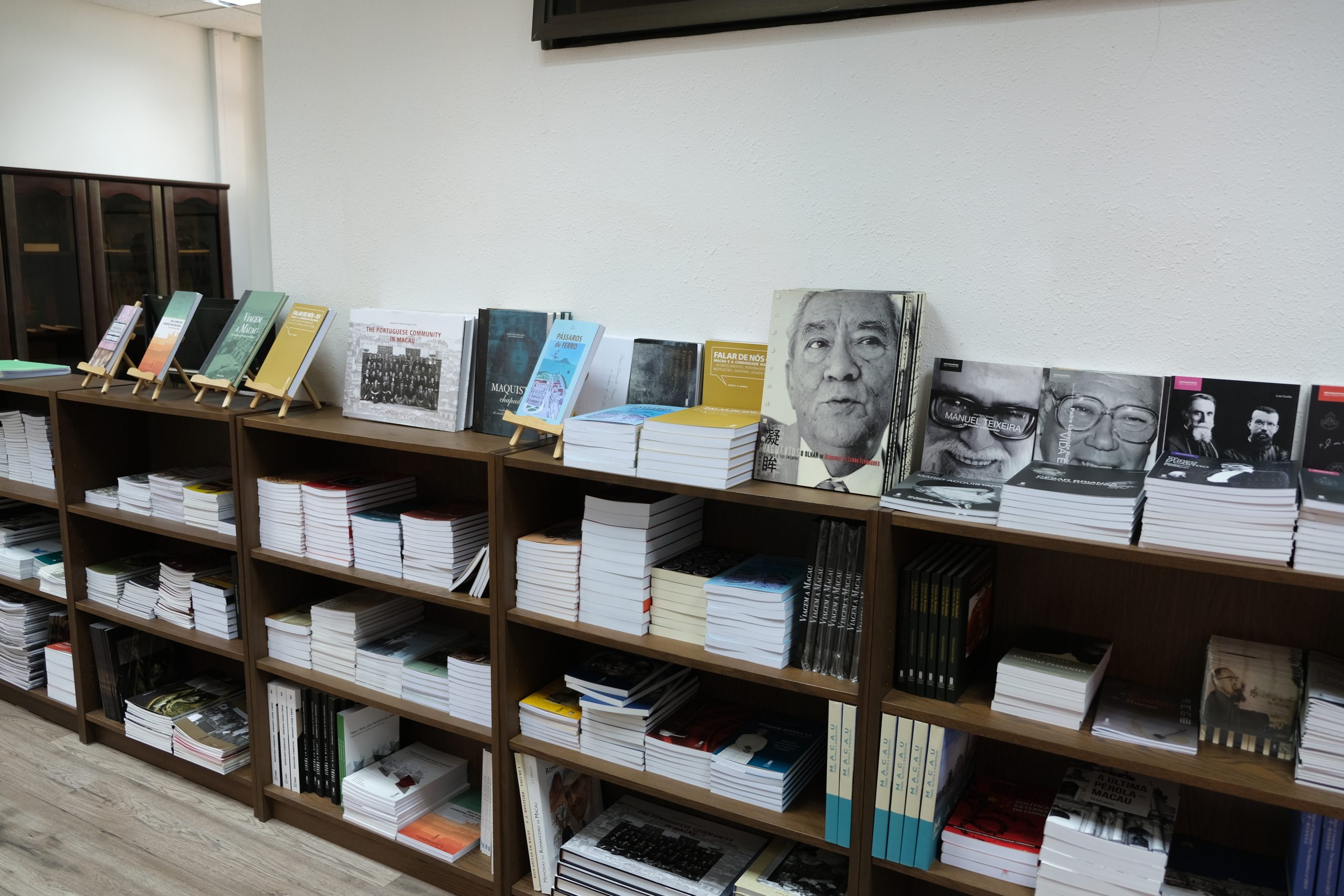
Recommended reads
Some of the best IIM publications
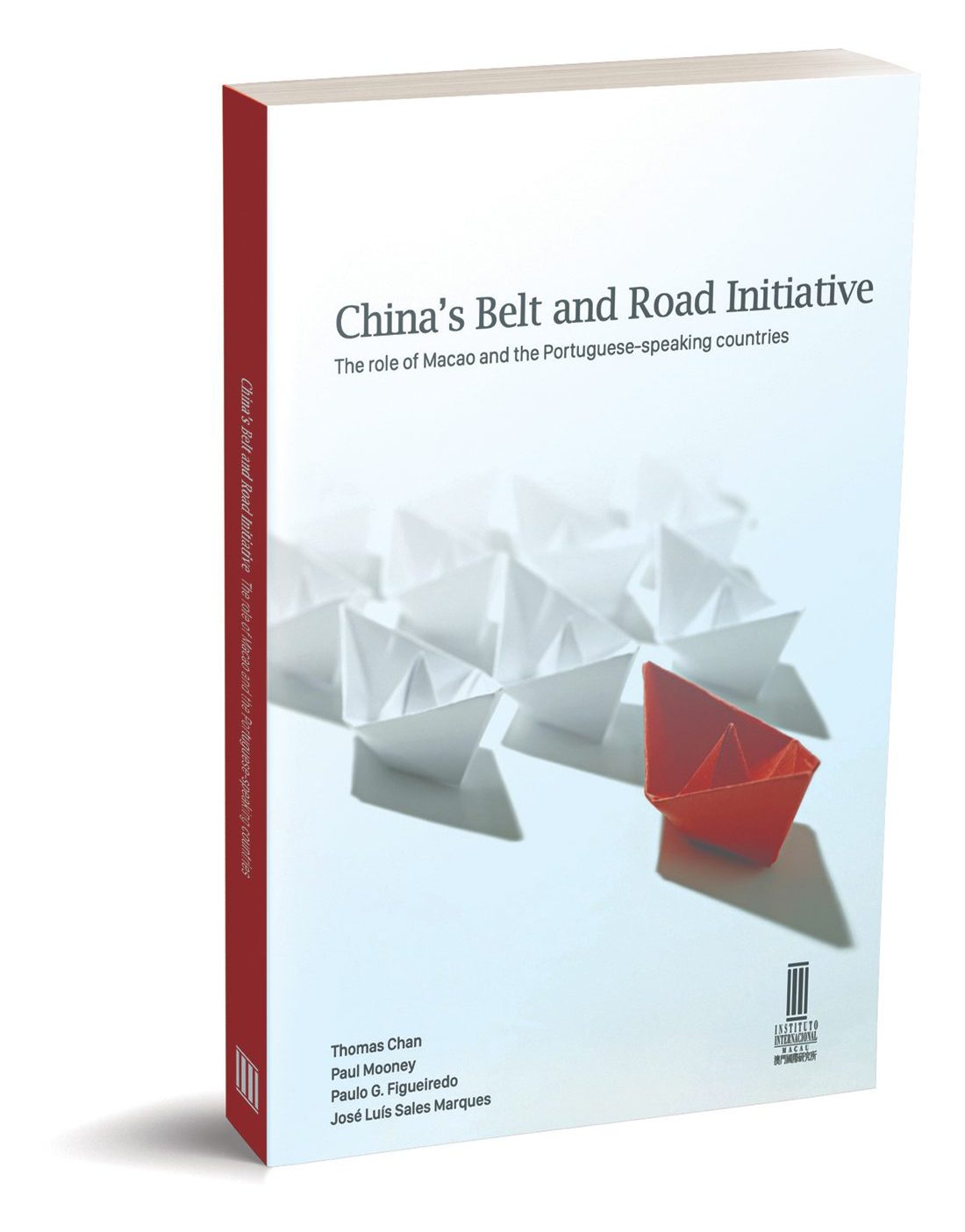
China’s Belt And Road Initiative: The role of Macao and the Portuguese-speaking countries
This book covers arguably one of the most important diplomatic and economic projects of our times. It explains the importance of this Chinese initiative in simple yet comprehensive terms while also highlighting the role of Macao and Portuguese-speaking countries in the Greater Bay Area.
Authors: Thomas Chan, Paul Mooney, Paulo G Figueiredo, José Luís Sales Marques
Macaenses: The Portuguese In China
This is a fascinating tale of Portuguese descendants in Macao and their experiences in regions of China. An important investigation into the Portuguese arrival in the city from the middle of the 16th century.
Author: António M Pacheco Jorge da Silva
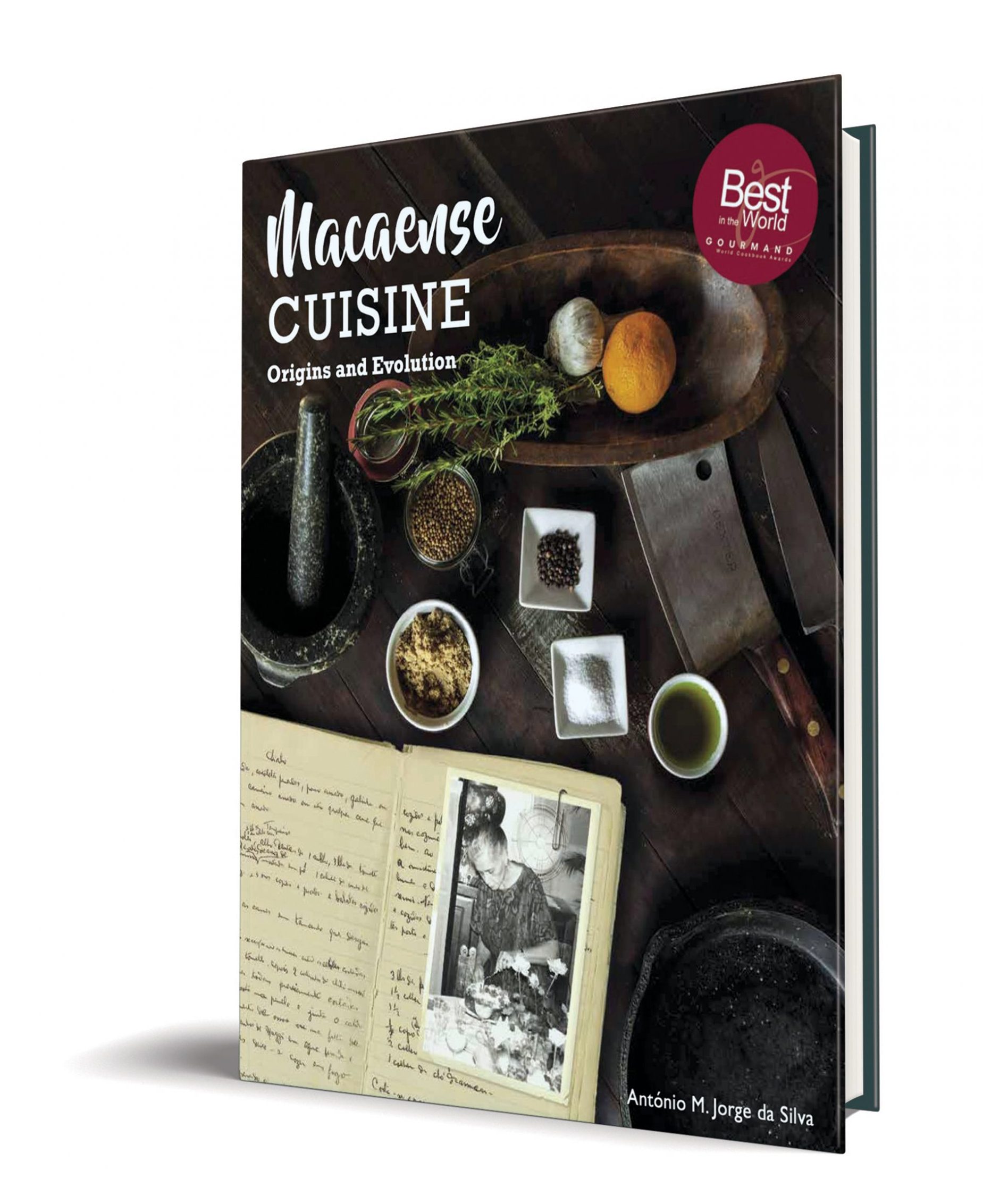
Macaense Cuisine: Origins and Evolution
A great read for any gourmand who wishes to know more about the history of Macao’s gastronomy and how to prepare it. This book will make you hungry.
Author: António M Pacheco Jorge da Silva
The Portuguese Community In Shanghai
This pictorial book is ‘dedicated to the memory of the proud Portuguese community who once lived in Shanghai’. It tells the forgotten story of a community which, in its own unique way, made a mark on the city.
Author: António M Pacheco Jorge da Silva
Bos Podi Papiah Ku Yo?
Although this book whose title literally translates to ‘Can You Talk to Me?’ is not written in English, it makes our list because it is a homage to Macao’s own language: Patois. It’s less a must-read – unless you understand the language that once echoed through the streets of Macao – and more of a must-see if you are interested in its historical importance.
Author: Sílvio Moreira de Sousa
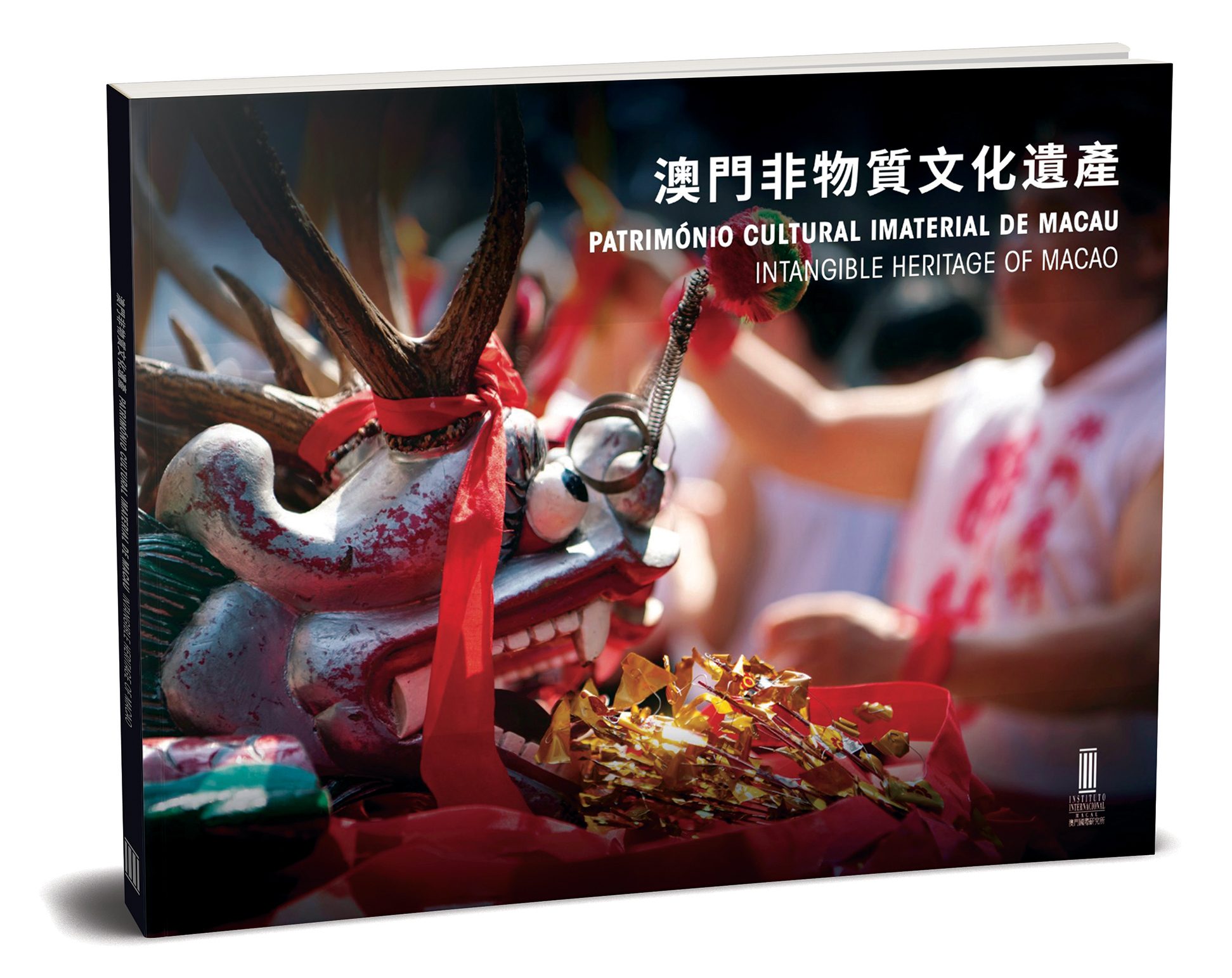
Intangible Heritage of Macao
A photographic collection of Macao’s 12 intangible heritage elements ranging from the city’s processions to the festival of the drunken dragon. This book takes readers through a journey of Macao’s rich culture – a melting pot of East meets West – that is today more important than ever to safeguard.
Author: Macaulink
Pioneers of Macau: The History of 14 Chinese Citizens that Helped Build the City
A great way to learn the history of Macao. This book profiles 14 great people that despite being unknown to the majority of the public, made the city what it is now. It falls under the ‘Summa of the East’ collection of books which are dedicated to explaining the essential elements of Asian cultures and their encounters with the West.
Author: Mark O’Neill
